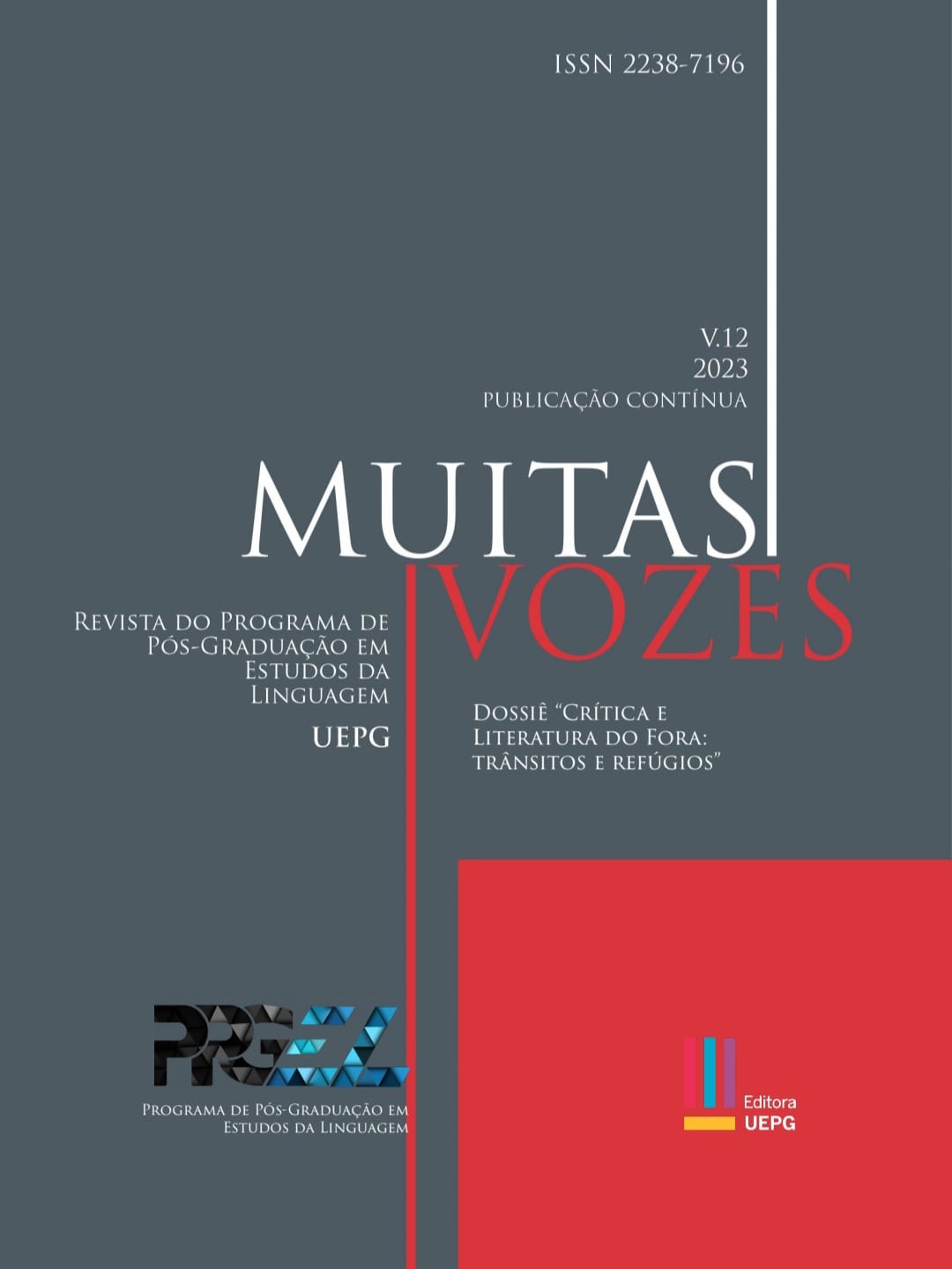O MOVIMENTO DA CIDADE: AS MÚLTIPLAS VOZES EM HOMBRES DE MAR, DE ÓSCAR COLCHADO LUCIO
Abstract
The subject of this article is Hombres de mar by Oscar Colchado Lucio, an Andean-Peruvian writer whose titled work focuses on the Chimbote region, a fishing area that saw its peak in the 1960s. The study focuses on the migratory process that involves the characters in circumstances that establish what writer Sylvia Molloy identifies as "living between languages," as the subjects are created in a space where the established Spanish language coexists and blends with the subordinated Quechua language; where the man from the mountains contends with the man from the coast; where, in the aesthetic context, Peruvian neo-indigenous literature gives way to Andean narrative; where the voice that narrates merges with the one that writes. The aim of this study is to reflect on the impact of this movement on the construction of identities, including authorial identities, guided by heterogeneity and hybridization (Cornejo Polar). By allowing these varied nuances to combine coastal urban life with Andean cosmology, Colchado Lucio architects Chimbote as an in-between place (Silviano Santiago), where the dock is both a character and a site for dialogue and the interface of languages and voices.
Downloads
Downloads
Published
How to Cite
Issue
Section
License
Copyright (c) 2024 Muitas Vozes

This work is licensed under a Creative Commons Attribution 4.0 International License.

Este obra está licenciado com uma Licença Creative Commons Atribuição 4.0 Internacional.
Transferência de direitos autorais: Caso o artigo submetido seja aprovado para publicação, JÁ FICA ACORDADO QUE o autor AUTORIZA a UEPG a reproduzi-lo e publicá-lo na REVISTA MUITAS VOZES, entendendo-se os termos "reprodução" e "publicação" conforme definição respectivamente dos incisos VI e I do artigo 5° da Lei 9610/98. O ARTIGO poderá ser acessado tanto pela rede mundial de computadores (WWW - Internet), como pela versão impressa, sendo permitidas, A TÍTULO GRATUITO, a consulta e a reprodução de exemplar do ARTIGO para uso próprio de quem a consulta. ESSA autorização de publicação não tem limitação de tempo, FICANDO A UEPG responsável pela manutenção da identificação DO AUTOR do ARTIGO.



